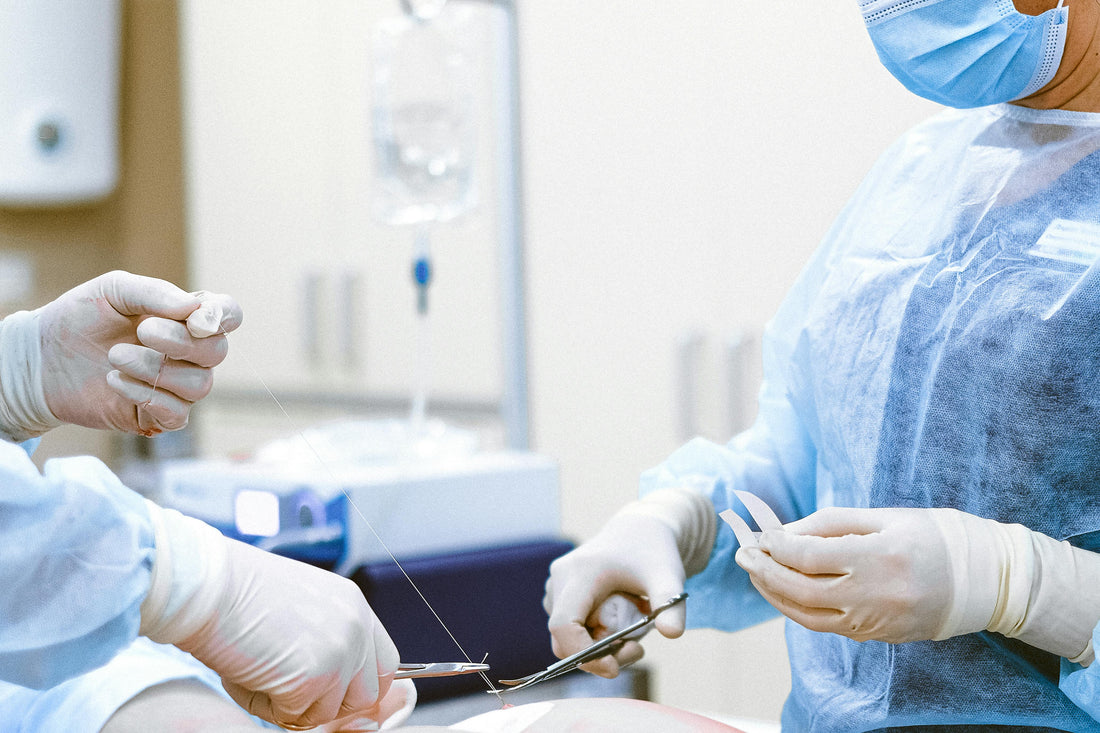
How Protein-Rich Diets Can Boost Recovery After Surgery
Share
Recovering from joint surgery like a hip or knee replacement can be tough—especially for older adults. One major challenge after such surgeries is losing muscle mass and strength, which affects balance, movement, and overall quality of life. But there’s good news: a growing body of research now shows that targeted nutrition, especially protein-based strategies, can help support better recovery.
This blog explains how protein and specific supplements might speed up healing and improve outcomes after orthopaedic surgeries.
The Problem: Muscle Loss After Surgery
Joint replacement surgeries—like hip or knee arthroplasty—are very common and usually done to relieve pain from conditions like osteoarthritis. However, many patients experience a sharp drop in muscle mass and strength during recovery. This happens for several reasons:
- The body enters a catabolic state (breaks down muscle) to help heal surgical wounds.
- Inflammation and immobility post-surgery worsen muscle loss.
- Older adults, already prone to age-related muscle decline, are especially vulnerable.
This combination can result in poor mobility, more falls, and longer hospital stays.
The Solution: Perioperative Nutrition
Researchers suggest that what patients eat before, during, and after surgery—a period called the perioperative window—can make a real difference. A study published in Experimental Physiology (2025) explores how protein-based nutrition can support recovery after orthopaedic surgeries.
The review focused on three key strategies:
-
Essential Amino Acid (EAA) Supplements
EAAs are building blocks of protein that the body needs but can’t produce on its own. In clinical trials, patients who took EAA supplements before and after surgery had less muscle loss and, in some cases, improved muscle strength and mobility.
-
High-Protein Diets
Most people, especially older adults, don’t get enough protein. The study showed that increasing protein intake to 1.2–1.9 g per kg of body weight per day before and after surgery helped preserve muscle mass and support physical function. Unfortunately, hospital meals often fall short of this target.
-
β-Hydroxy β-Methylbutyrate (HMB) Supplements
HMB is a substance the body makes from the amino acid leucine. Some evidence suggests it may reduce muscle breakdown and improve strength, though more studies are needed to confirm its effectiveness.
Practical Advice for Patients and Caregivers
If you or a loved one is scheduled for orthopaedic surgery, here are simple steps to support a smoother recovery:
- Start early: Begin increasing protein intake as soon as surgery is scheduled.
- Focus on quality protein: Lean meats, dairy, legumes, eggs, and quality supplements can help.
- Talk to a dietitian: A healthcare provider can help tailor the diet to individual needs.
- Consider supplements: EAA or HMB supplements may be worth discussing with your doctor, especially if eating enough protein is difficult.
Why This Matters
Improved nutrition could mean:
- Shorter hospital stays
- Fewer complications
- Faster return to daily activities
- Better long-term mobility and independence
These benefits not only help patients recover better but also reduce healthcare costs.
Final Thoughts
Nutrition is often overlooked in surgical recovery, but this study shows that protein-based interventions can be a powerful tool in the healing process. Whether it's essential amino acids, more dietary protein, or new supplements like HMB, a stronger recovery could start with what’s on your plate.
